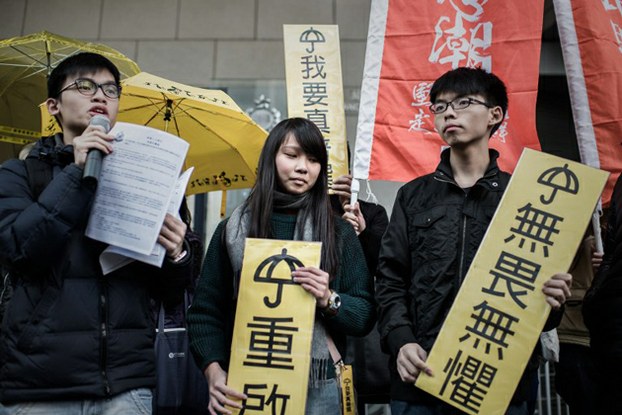




Authorities in Hong Kong have announced a probe into the setting of examination questions after the ruling Chinese Communist Party's state media slammed a question asking to consider whether Japan made a positive contribution to China in the first half of the 20th century.
The Hong Kong Diploma of Secondary Education (HKDSE) history examination question had "seriously hurt the feelings and dignity of the Chinese people who suffered greatly during the Japanese invasion of China," state news agency Xinhua quoted Hong Kong education secretary Kevin Yeung as saying.
The question asked students: "Do you agree with the statement that during 1900-1945, Japan brought more benefits than harm to China?"
Hong Kong's education bureau said on Friday it had assigned a team to carry out how exam questions are vetted and approved, and whether the process had been properly implemented.
China's foreign ministry wrote on its Hong Kong office's official Facebook page that "Hong Kong's education sector must not become a chicken coop without a roof," echoing a comment from the city's chief executive Carrie Lam in a recent interview with a pro-Beijing newspaper.
In that interview, Lam said she was planning reforms to the liberal education program currently offered in Hong Kong's secondary schools.
"Hong Kong's question leads students to be traitors," China's Global Times tabloid newspaper opined on Friday.
'Gravely concerned'
The Hong Kong government said in a statement it was "gravely concerned" about the question, and was investigating the approval process for question setting in public examinations.
"The [education bureau] will assign a team of colleagues who are familiar with the curriculum and quality assessment to visit the Hong Kong Examinations and Assessment Authority (HKEAA) to investigate the question setting, vetting, and approval mechanism," it said in a statement on Friday.
It said the question would be struck from the exam.
"We will request the Hong Kong Examinations and Assessment Authority (HKEAA) to invalidate the examination question concerned and make appropriate adjustments to ensure the credibility and effectiveness of the history examination," the statement said.
"The education bureau will review the existing mechanism and fulfill its role of monitoring the conduct of the HKDSE to ensure the quality of the examination and the examination papers," it said.
Hong Kong-based commentator Chui Yin said the exam question hadn't tried to dispute the facts of the Japanese invasion, but had rather tried to encourage critical thinking about those facts.
He said it was unnecessary for the ruling Chinese Communist Party, which only came to power in 1949, to feel upset on behalf of its predecessors, the 1911 Republic of China, which now presides over a democratic nation in Taiwan, or the Qing Dynasty (1644-1911) that preceded it, both of which were included in the remit of the question.
"History has always had positive and negative sides, and even controversial historical figures have merits and demerits," Chui wrote in a commentary broadcast by RFA's Cantonese Service. "To read history is to understand these positive and negative views, and to make objective comments on them."
"The only problem here is that the Chinese Communist Party has no respect for history, ignores the facts, and refuses to allow independent thought," Chui wrote.
'Patriotic education'
Amid mounting unrest in Hong Kong, Beijing last November unveiled plans for a new program of "patriotic education" in a bid to achieve ideological "unity," including the former colonial territories of Hong Kong and Macau in the plan.
In a Nov. 12, 2019 document, the party's Central Committee called for a program of ideological indoctrination that begins in the cradle and specifically focuses on young people.
China has been at pains to frame the year-old anti-extradition and pro-democracy movement in Hong Kong as "separatist," saying that protesters want independence for the city, although the majority say they are fighting to prevent the loss of their existing freedoms.
Officials in Hong Kong have already begun turning away would-be election candidates who call for Hong Kong to be granted the "high degree of autonomy" promised in the 1984 Sino-British Joint Declaration, an international treaty governing the 1997 handover of the city to Chinese rule.
China wants "patriotic content" to be integrated into textbooks and teaching materials at all levels of education.
Proposals for patriotic education in Hong Kong's schools were shelved in 2012 after thousands of protesters camped outside government headquarters for several weeks, dressed in black and chanting for the withdrawal from the curriculum of what they called "brainwashing" propaganda from the Communist Party.
Reported by Wu Hoi-man for RFA's Cantonese Service. Translated and edited by Luisetta Mudie.